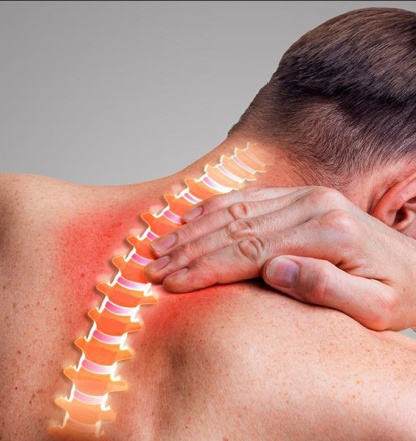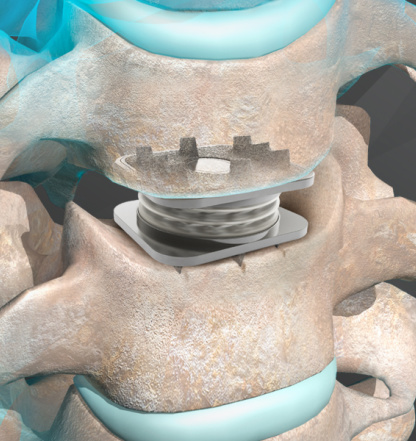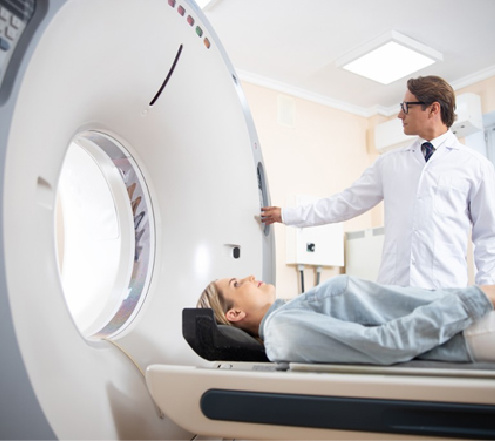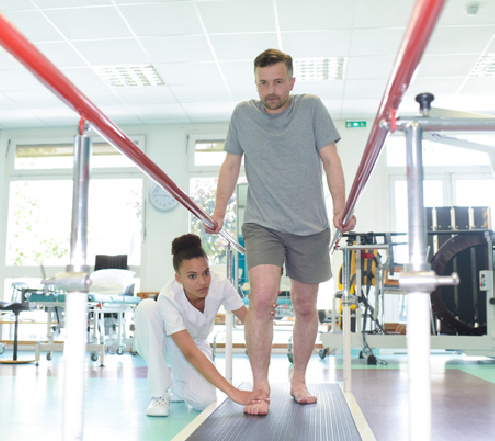Being overweight or obese is something of a double whammy when it comes to back and neck pain. Carrying excess body weight not only increases your risk of spine problems, it may also mean that you are not a good candidate for back surgery to correct…
Being overweight or obese is something of a double whammy when it comes to back and neck pain. Carrying excess body weight not only increases your risk of spine problems, it may also mean that you are not a good candidate for back surgery to correct those problems.
Some patients may be surprised to learn that before they can have spine surgery they need to shed some pounds. This is because heavier patients have a greater risk of surgical complications, including problems with anesthesia, breathing, and cardiovascular function, in addition to greater challenges healing from surgery.
Medical weight loss is recommended for many patients with back and neck pain, but what is it exactly?
Let’s start by stressing that medical weight loss is not surgery, diet pills, or another fad diet. Instead, true medical weight loss programs are based on credible scientific research and target the root causes of obesity and overweight. The aim is to lose weight in a healthy fashion so that you can achieve and (crucially!) maintain a healthier body weight going forward.
What are medical weight loss programs?
Medical weight loss programs are administered by trained doctors or health care providers and are designed to help every individual achieve their personal weight loss goal, be that losing 100 lbs, 200 lbs, or 10 lbs. The greatest benefits are typically seen in those with a body mass index over 30 – where that mass includes a high percentage of body fat (adipose tissue) – because this can significantly reduce the risk of a range of serious medical conditions such as diabetes, cardiovascular disease, sleep apnea and cancer.
True medical weight loss programs use a range of tools to assess metabolism and body composition. This is important as it is possible to have a high calorie diet and a high body mass index and still be healthy, such as in the case of a body builder who eats a lot and weighs more than average, but who carry very little fat and whose metabolism is non-problematic.
For those who are carrying excess body fat and who have or who are at risk of metabolic syndrome, medical weight loss programs can help create structured diet and exercise plans that facilitate gradual weight loss to achieve a target weight. Even losing 10 lbs can significantly reduce a person’s risk of numerous health conditions and may allow them to undergo surgery that is too risky otherwise.
Medical weight loss programs are tailored to the individual, accounting for existing health conditions, family medical history, behavioral considerations such as emotional overeating, and barriers to exercise that necessitate some creativity and additional support.
What to expect from a good medical weight loss program
A good medical weight loss program will begin with a complete medical and lifestyle profile. This profile should include any medications or medical devices currently being used, as well as any supplements or alternative health modalities. This will often be done prior to the first appointment with a clinician.

Look for a program that then carries out a full body composition analysis, including blood pressure and blood glucose testing. This will give you and your physician a baseline from which you can track your progress.
Following these assessments, you will likely sit down with a clinician to discuss your results, to clarify any issues, and to establish your desired outcome from the program. They may ask you about specific challenges you have faced when trying to lose weight and keep weight off in the past. This information is then used to create a personalized medical weight loss program just for you. This clinician will also typically serve as your point of contact and support throughout your program, helping you to stay on track for success.
Why are these programs different to regular dieting?
Medical weight loss programs differ substantially from yo-yo diets and weight loss pills largely because these programs aren’t seen as a short-term fix. Instead, these kinds of programs are designed to help create sustainable habits that support good health going for the rest of your life, giving you the skills to manage your weight and your health successfully.
The importance of this is increasingly recognized by the medical establishment, with many physicians all too aware that simply telling a patient to lose weight without providing any guidance and support is often counterproductive. The problem is that obesity and overweight is a complex, multifaceted issue that poses a challenge for medical billing. It is often poorly funded, therefore, resulting in poor availability of evidence-based weight loss programs.
Things are changing, however, and some medical weight loss programs are now fully covered by health insurance, while some insurers cover components such as weight loss screening and behavioral counseling. Check with your insurance provider for more information and look for credible medical weight loss programs that are well-established, transparent about funding and results, and that offer comprehensive ongoing support. A good medical weight loss program will typically provide one-on-one counselling three times a week for up to a year, with many specialists noting that it can take six months to establish healthy habits and a year to make healthy lifestyle changes that stick.
If you have neck and back pain and are overweight, a medical weight loss program could be just what you need to help you relieve the stress on your joints and put you in good stead should you need spine surgery.
If you’re interested in a credible Atlanta Medical Weight Loss program, we invite you to visit our friends at Integrative Wellness Atlanta for more details.






























